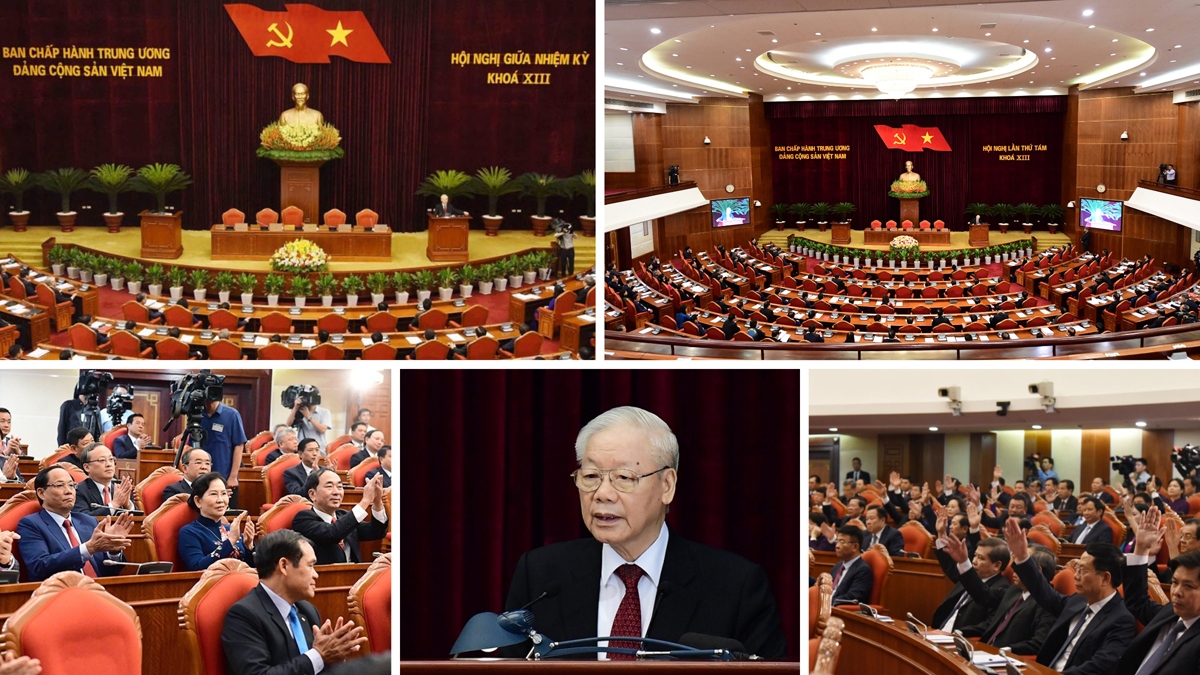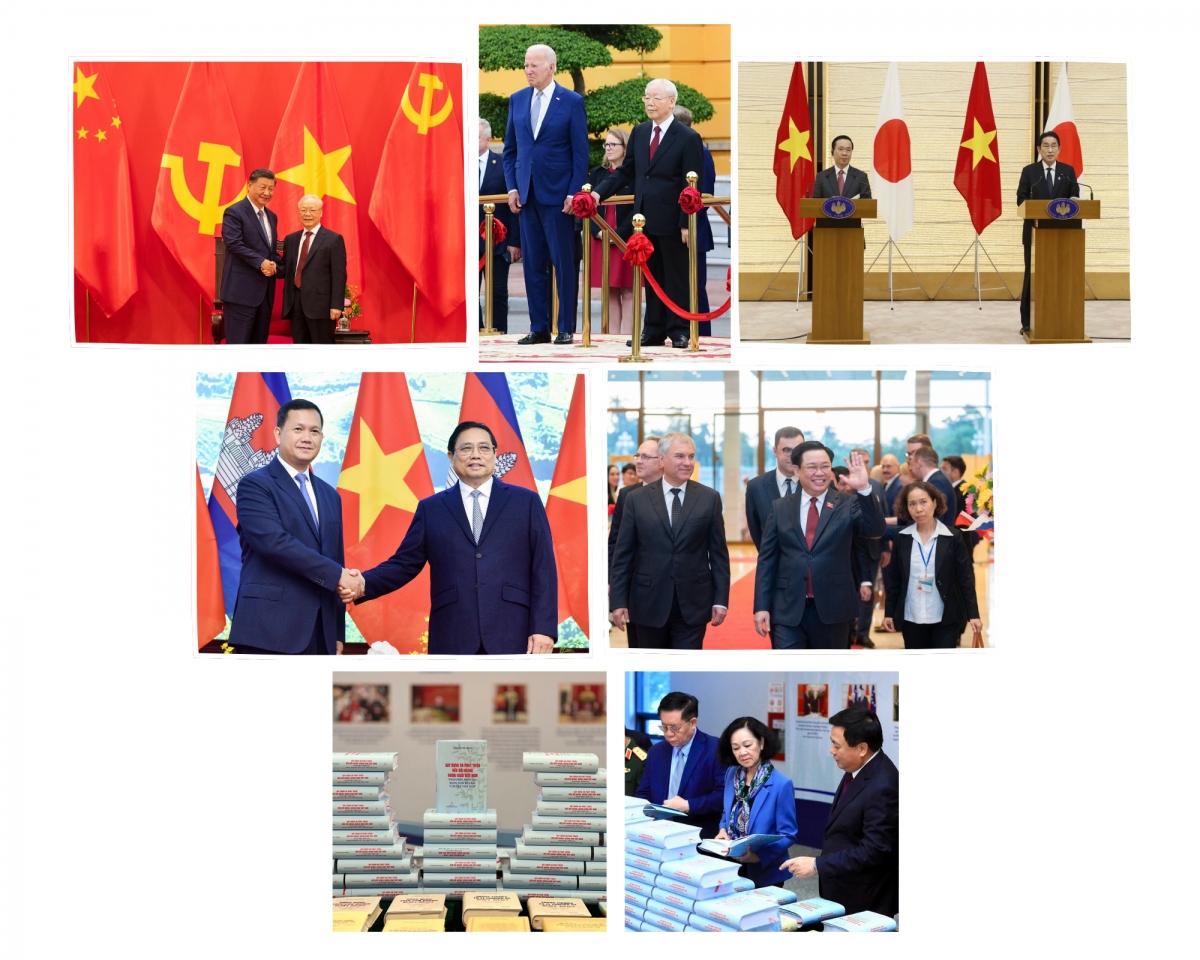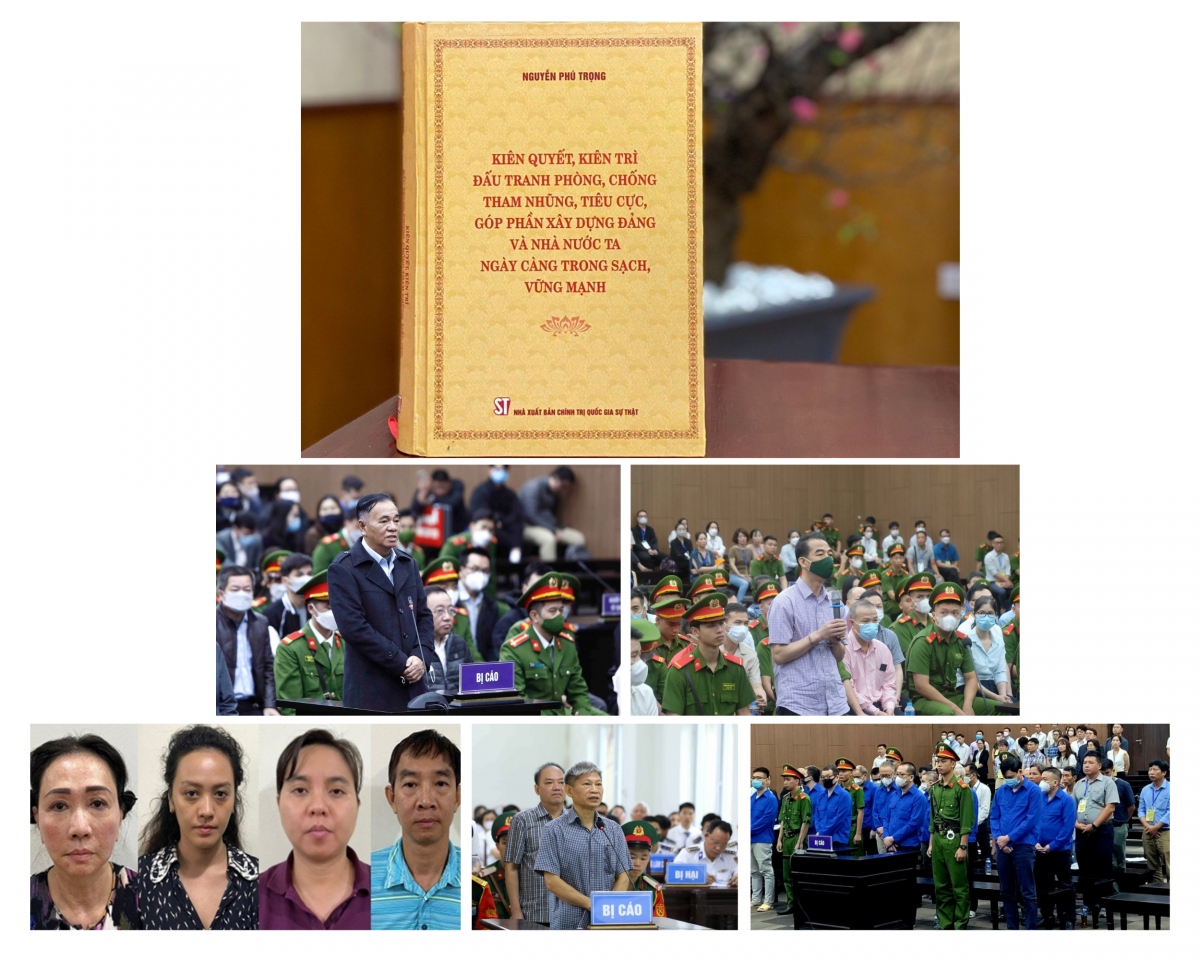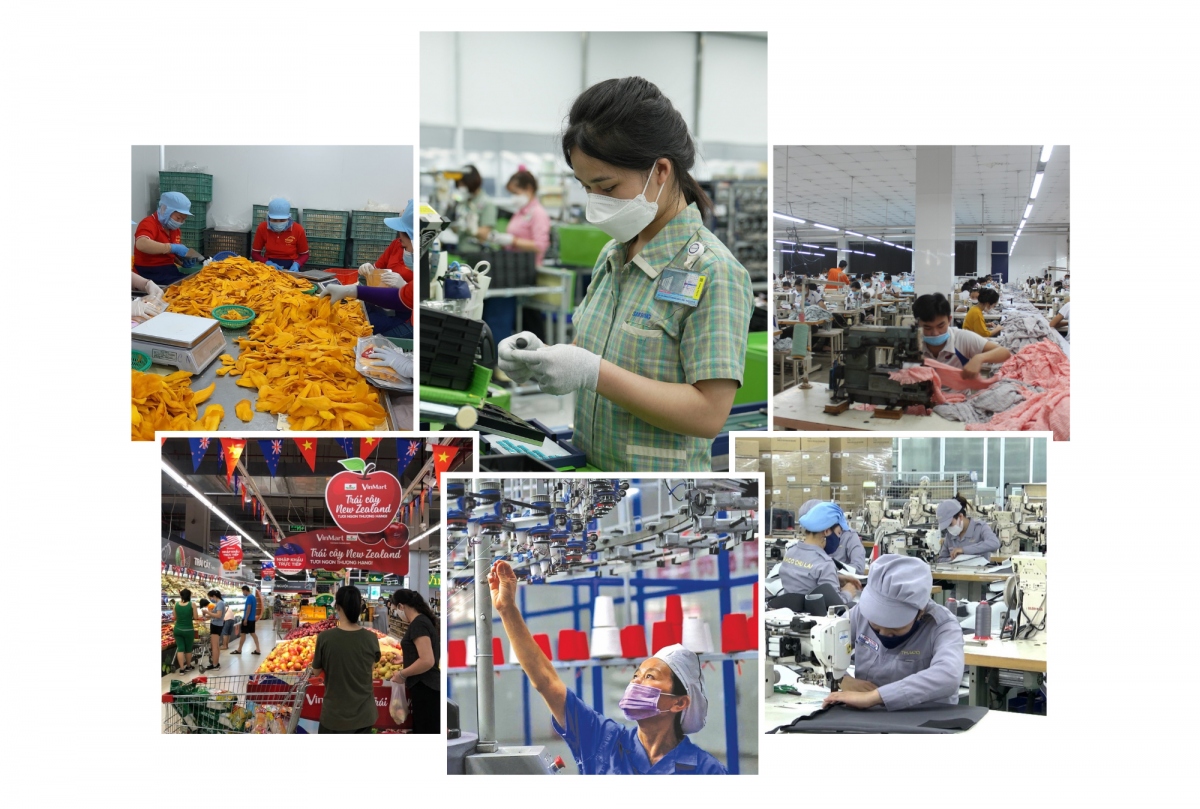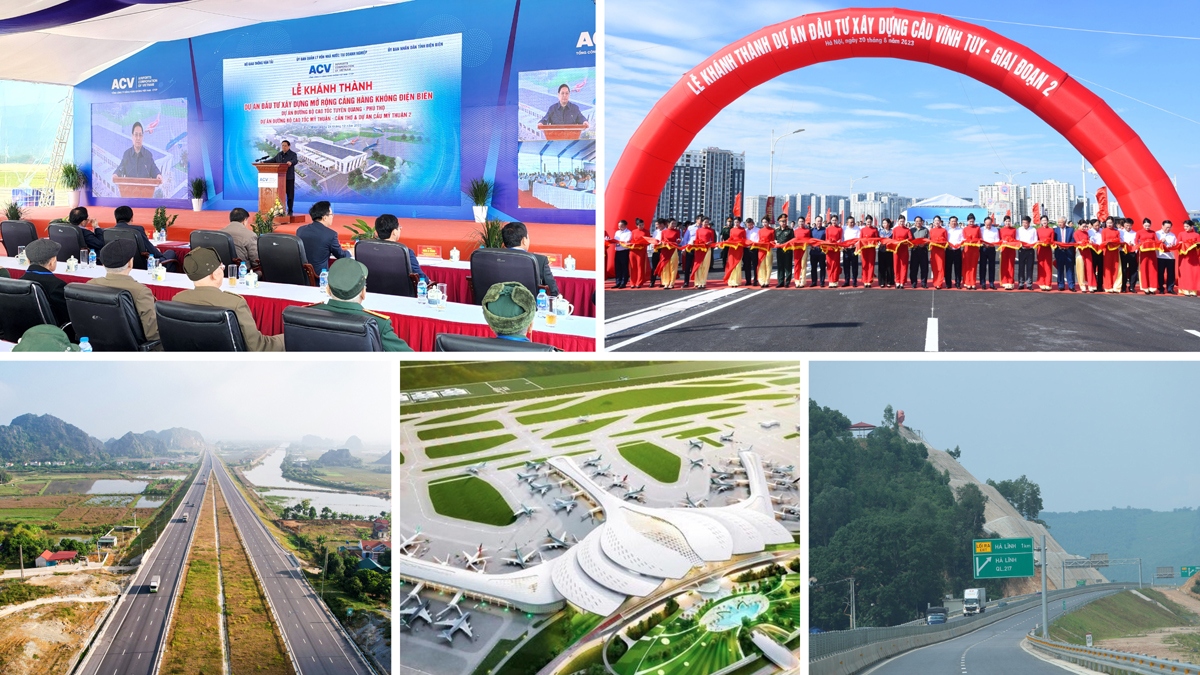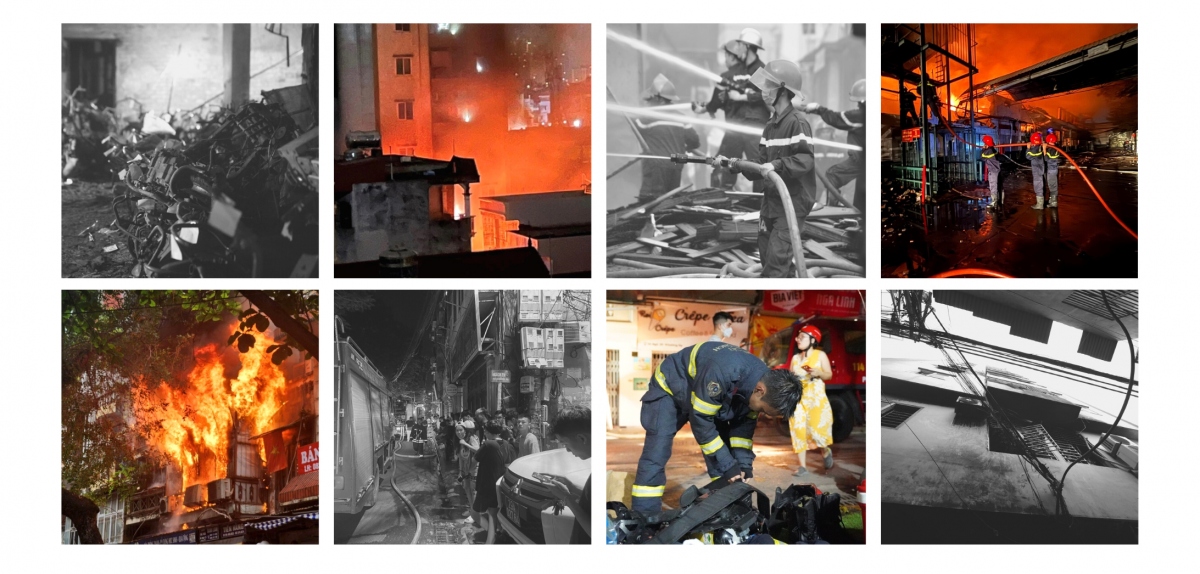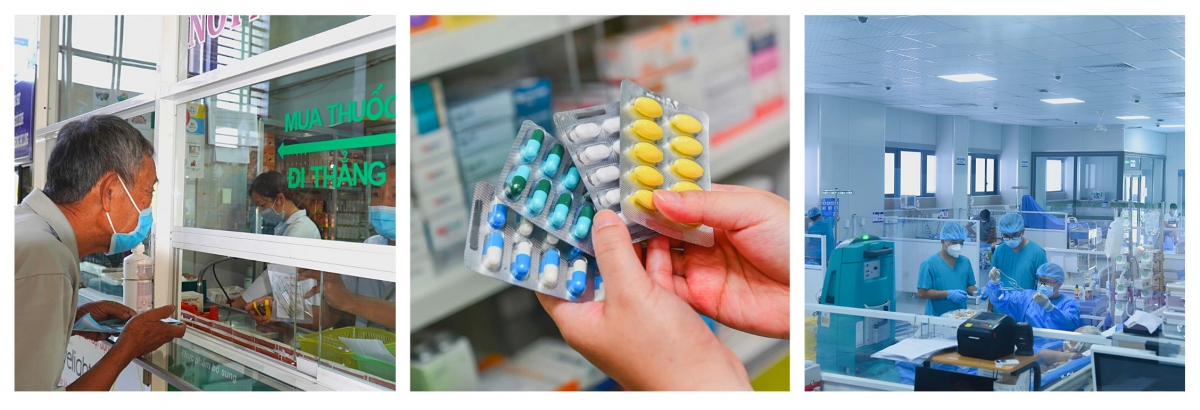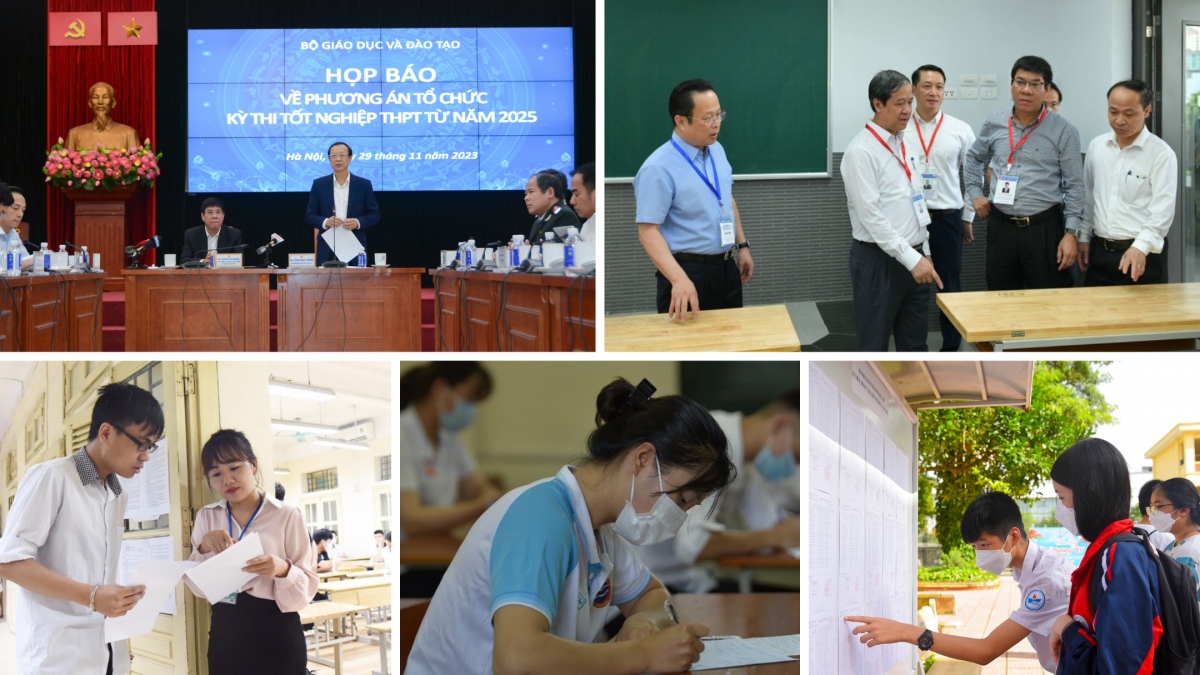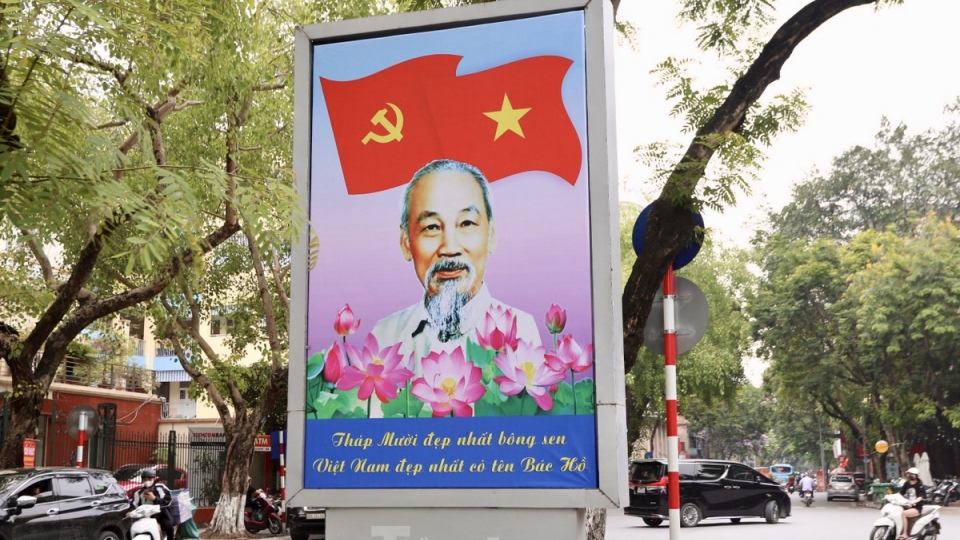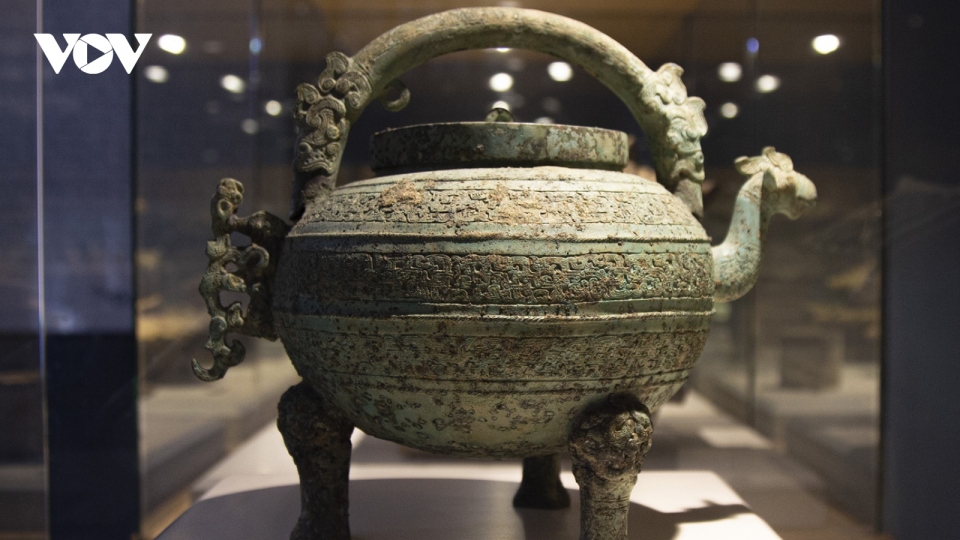Top 10 events in Vietnam in 2023
1. Important mid-term decisions made by the Party
At its seventh plenum, the Party Central Committee drew five lessons of experience and proposed five key tasks in the second half of the 13th term, alongside holding a vote of confidence in members of the Politburo and the Secretariat. At the eighth plenum, the Party Central Committee issued four important Resolutions, and gave opinions on the personnel work of the committee for the 2026-2031 term.
The two important plenums promptly and effectively handled a range of new problems that arise in practice, motivating the entire political system to successfully complete the development goals set by the 13th National Party Congress.
2. Diplomatic imprint and Vietnam’s rising position globally
2023 was a bustling year of diplomatic activities for Vietnam marked by high-level visits to Hanoi by Party General Secretary and President of China Xi Jinping, President of the United States of America Joe Biden and many heads of State and government of other countries, as well as a number of official visits overseas by Vietnamese leaders. Notably, Vietnam and China agreed to further deepen and elevate their comprehensive strategic cooperative partnership and building a China-Vietnam community with a shared future that carries strategic significance. Vietnam also lifted relations to a comprehensive strategic partnership with the Unite States and Japan.
During the year, the book on “Building and developing a comprehensive and modern Vietnamese foreign policy and diplomacy imbued with the identity of ‘Vietnamese Bamboo’” by Party General Secretary Nguyen Phu Trong was launched, demonstrating the Party’s consistent and thorough ideology on the country’s foreign policy and diplomacy.
The success of foreign affairs in 2023 concretized the foreign policy adopted at the 13th National Party Congress, contributing to creating and maintaining a peaceful and stable environment for development, while enhancing the position and prestige of the country globally.
3. Power control tightened, anti-corruption campaign intensified
In 2023, the Politburo issued regulations on power control, corruption and negativity prevention in personnel work; investigation, prosecution, trial, and enforcement of judgments; inspection, supervision, and enforcement of Party disciplines; as well as inspection and audit activities. These regulations helped to strictly strengthen the control over the power of ranking officials and Party members, especially the head of the organisation.
During the year, Party General Secretary Nguyen Phu Trong’s book on the fight against corruption and other negative phenomena was launched, highlighting the theoretical and practical values in the fight. The book entitled “Resolutely, persistently fighting corruption and negative phenomena to contribute to building more transparent and stronger Party and State” helped to clarify the Party’s thinking regarding corruption and negativity prevention, as well as Party building and rectification.
The ongoing anti-corruption campaign was intensified as evidenced in the extensive investigations into notorious graft scandals, with many high-ranking officials, both current and retired, getting involved. Many officials linked to the COVID-19 test kit scandal at Viet A company or the repatriation flight case at the Consular Department under the Ministry of Foreign Affairs were brought to court. The ongoing crackdown on corruption under the motto “no forbidden zone” contributed to strengthening the trust of officials, Party members and people in the Party and State.
4. Economy strongly resilient amid global headwinds
In 2023, major goals of the economy were achieved, with the macroeconomy being stable, GDP growth forecast to expand more than 5%, and major balances guaranteed. A series of fiscal and monetary policies were implemented synchronously and drastically to support socio-economic recovery and development. The government worked hard to complete mechanisms and policies to improve the investment and business environment, stabilize exchange rates and prices of essential goods, and at the same time remove difficulties in the financial, construction and real estate markets.
Although Vietnam failed to meet its growth target, the recorded gains demonstrated the country’s all-out efforts to weather domestic and global difficulties, especially headwinds in the global economy.
5. Breakthroughs in transport infrastructure construction
In 2023, Vietnam made efforts to resolve difficulties in mechanisms and policies, creating breakthroughs in implementing important infrastructure projects, including the Long Thanh air terminal and national expressway projects. These projects helped to remove traffic bottlenecks, gradually completing regional connectivity, and creating motivation to facilitate socio-economic development.
6. 80 years of the “Outline of Vietnamese Culture”
The “Outline of Vietnamese Culture”, the first platform on culture launched by the Communist Party of Vietnam 80 years ago, affirmed its value over time, even in the context of Vietnam promoting the development of its cultural industry. The Outline defines three movement principles in culture: nationalisation, popularisation, and scientification, which are still seen as fundamental principles guiding the development of Vietnamese culture. The 80-year-old document retains its profound theoretical and contemporary values, lighting the path forward for Vietnam in building and protecting the Fatherland.
A series of activities commemorating the 80th anniversary of the Outline of Vietnamese Culture were held across the country, aiming to promote the historical and practical values of the document to make culture truly become the spiritual foundation, internal strength, driving force for national development and defense in the light of the Party’s Resolution.
7. Serious fires and explosions causing heavy consequences
2023 saw nearly 2,000 fires and explosions occur, claiming nearly 150 lives and causing heavy material damage. Among serious cases, the mini apartment fire that occurred on September 12 in Hanoi’s Thanh Xuan district, killed 56 people and injured 37 others.
These haunting numbers ring alarm bells about the lax management and inspection of fire safety regulations in construction projects, as well as people’s poor awareness of fire prevention and control, that requires drastic changes and corrections.
8. Shortage of medicines and medical supplies yet to be completely resolved
Although the National Assembly, the Government and the Ministry of Health issued many documents to support the health sector, there was a shortage of drugs, medical supplies and equipment in hospitals across the country that was yet to be thoroughly addressed. Among the causes were the impact of the COVID-19 pandemic, inadequate legal documents, and bidding problems, especially the fear of making mistakes in individuals, organisations, and localities. Solutions are needed to completely resolve the problems in the long term.
9. Comprehensive salary reform in 2024
The elite leadership decided to implement the comprehensive salary reform policy based on job position starting on July 1, 2024, to ensure workers could live off their income. The primary goal of this policy is for wages to truly be the main source of income to ensure the lives of workers and their families. The much awaited policy is also to invest in human resource development; create motivation to improve labour productivity and work efficiency; and make an important contribution to social progress and equity, while ensuring socio-political stability, promoting and improving the quality of growth and sustainable development.
10. New regulations on high school graduation exam as of 2025
The Ministry of Education and Training decided on only four tests that high-school students will take in their graduation exam as of 2025 as opposed to five or six as seen in previous years. Accordingly, candidates will sit two compulsory tests (mathematics and literature), and two optional tests (a foreign language, history, geography, physics, chemistry, biology, economics and legal education, informatics, and technology).
The new exam model is expected to help reduce pressure and costs on society, adhere to the ongoing education reform programme, accurately assess students’ abilities, and ensure equal access to all subjects. The decision was strongly backed by the majority of students, parents and teachers.

